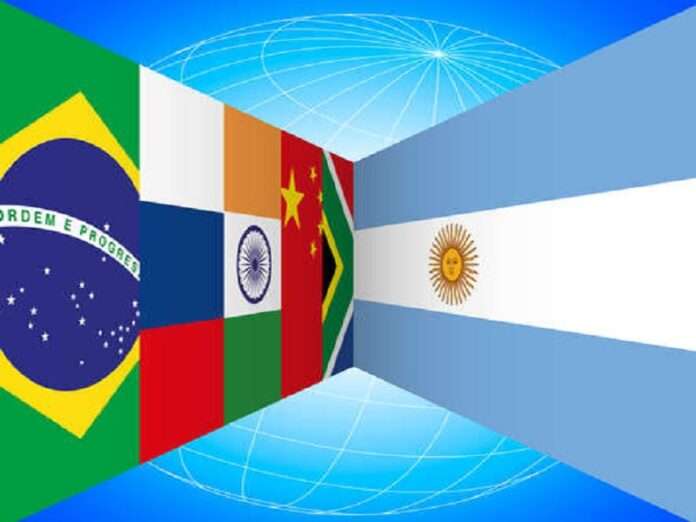Last week’s BRICS Summit in South Africa saw the bloc more than double its number of members after extending invitations to six countries to join at the beginning of next year during the start of Russia’s presidency. Argentina was one of those that was given the opportunity to coordinate the acceleration of financial multipolarity processes with the world’s largest and most promising Global South economies, mostly via expanding the use of national currencies in trade, but it remains unclear whether it’ll accept.
The reason why this can’t be taken for granted is because the next general elections in late October could lead to opposition frontrunner Javier Milei sweeping into power and fulfilling his recent pledge “not to align with communists”. While clarifying right afterwards that his government wouldn’t interfere with the deals the private sector decides to make with whoever, his statement was interpreted as signaling that he’s against Argentina entering the same group as communist China and socialist Brazil.
This assessment is based on Milei’s promise to dollarize the economy, double down on Argentina’s alliance with America, and pull out of Mercosur, all of which are aimed at resolving its economic crisis but are the antithesis of everything that BRICS represents. By contrast, outgoing President Alberto Fernandez described BRICS membership as a “great opportunity” while Brazil immediately proposed yuan guarantees for exports to secure payment, thus presenting voters with a stark choice this fall.
They can either choose Milei and ideologically aligned opposition leader Patricia Bullrich’s pro-US geo-economic vision or ruling party candidate and incumbent Economic Minister Sergio Massa’s pro-BRICS one. It’s important for observers to note, however, that Argentina hadn’t been invited to join BRICS by the time that mid-August’s primary elections saw Milei unexpectedly become the frontrunner. This means that Massa’s geo-economic vision at the time lacked the substance that it received soon after.
Considering how poorly he performed, it can’t be ruled out that Brazilian President Lula da Silva – who’s ideologically aligned with Argentina’s ruling party – wanted to throw his allies a lifeline ahead of fall by lobbying for his neighbor’s invitation to join BRICS in order to make geo-economics a top election issue. His speculative intent in that scenario would have been for voters to be aware of the pivotal stakes at play during the upcoming polls, which he could have hoped would galvanize Massa’s leftist-aligned base.
Critics might describe this as meddling since the motive is to boost the incumbent party’s electoral prospects, but there arguably isn’t anything wrong with that country being invited to join BRICS since the Argentine people deserve to know the full extent of the geo-economic choice before them. They can either continue moving towards the emerging non-Western-centric global financial system by giving BRICS a chance or eschew this “great opportunity” in favor of radically realigning with the US.
This admittedly puts enormous pressure on voters, but hopefully it’ll inspire them to learn more about the global systemic transition in general as well as the pros and cons of the diametrically opposite geo-economic futures that they’re forced to decide upon in less than two months’ time. Argentina will either stay the course and possibly make financial multipolarity processes irreversible in their region or pivot towards America and potentially set into motion counter-multipolarity processes across the continent.
Either way, the people’s will should be respected by all observers since it’s ultimately their country and nobody else other than them has the right to determine its destiny. It’s too soon since Argentina’s BRICS invitation was extended to see whether it’ll have an effect on the election’s dynamics after the recent primary’s surprise outcome, but polling will presumably be done in the run-up to late October’s vote to see whether it’s helping Massa or if it backfired on him by leading to even more support for Milei.







